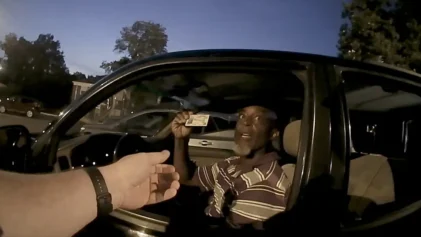A victory for African-American descendants of enslaved people will not be shared by other Blacks in the U.S.
“Now that we know who’s eligible, let’s talk about the forms of reparations,” said Kamilah Moore, chair of the California Reparations Task Force.
Moore leads a nine-member group formed in 2020 comprised of civil rights activists, lawyers, scholars, and politicians. Ever since last summer, the task force has mulled over a key question regarding reparations for Black people in California: who should get them?
After two delayed votes, on March 29, the task force finally decided in a five to four vote, limiting compensation to the descendants of free and enslaved Black people who were in the U.S. in the 19th century.
Moore says determining who is eligible can be done with more certainty using a lineage-based standard compared to a race-based approach. “If we had went with a race-based approach, people don’t often ask the same question, how do you prove your Blackness, how do you go about proving that, how do you measure your Blackness,” Moore said.
Moore says focusing solely on race alone opens doors to more groups of people getting reparations intended for descendants of slavery.
“Black is a self-selecting category on the Census; anyone can select Black,” Moore said in giving reasons why the task force decided on a lineage-based approach. “Under a race-based standard, white people could get in, people of color could get in through that idea that race is a social construct,” Moore went on to say.
Moore says the task force still has a lot of work to do before submitting a final report to the legislature. They still need to decide what proof Black California residents will need to verify their lineage. Moore says, “I think it will be mainly genealogical, like census records, birth records, things like that.”
Moore says Black Americans who have at least one parent whose lineage can be traced to an enslaved person would also be eligible. “Someone like Malcolm X, whose mother was Caribbean, and his father was African-American, he would be entitled to full reparations under this standard,” Moore said.
The task force must also determine what the reparations will look like, which could include money or special grants and programs.
As news spread of the task force decision, some members of the American Descendants of Slavery (ADOS) movement, like Angela Nirvana of Long Beach, California, a staunch advocate of freedmen, was gleeful. “If they make it lineage-based and they’re really committed to doing the right thing, they’ll be able to repair the people,” Nirvana said, Co-Founder of the former ADOS Movement.
Nirvana says African-Americans are disadvantaged by systemic racism that affects housing, education, job opportunities, health care and more, and she attributes those disparities to the legacy of chattel slavery.
The lineage-based reparations supporter said she understands all Black people in America suffer from overt and institutional racism, however, she believes any form of reparations in America belong to African-Americans who are descendants of people held in slavery on U.S. soil .
“It’s not just about whether or not we were on your field picking cotton. It’s about the way you had your policies rigged and how you legislated us here to the bottom caste,” Nirvana said.
Atlanta Black Star asked the task force chair about the message the lineage-based reparations decision could send to the Black diaspora at large across the U.S. and if the task force worries their decision could cause division within the Black community. She responded pushing solidarity.
“To my Black immigrant brothers and sisters, does this decision mean Black immigrants don’t suffer from systemic racism and anti-Blackness? Absolutely not. Does this decision mean African-Americans who are descendants of slaves should stop being in solidarity with the African diaspora or other oppressed groups? Absolutely not,” Moore said.
California has a little more than 2 million Black people living within its borders, but not all of them would be eligible for reparations. The task force understands their decision could have national implications. The Associated Press reports cities in Michigan, Rhode Island, and Illinois are considering or have already passed some form of reparations measures.
At the federal level, H.R. 40, legislation that would establish a committee to study reparations, was first introduced in 1989 by the late Rep. John Conyers and introduced again by Rep. Sheila Jackson Lee last year, but the bill has since stalled. Moore hopes what the task force is doing for California fuels the reparations debate nationally.
“Given it has made national news, it has energized people around this issue, it has made people curious about this issue and hopefully it’s going to renew the demand for a federal reparations effort,” Moore said.


